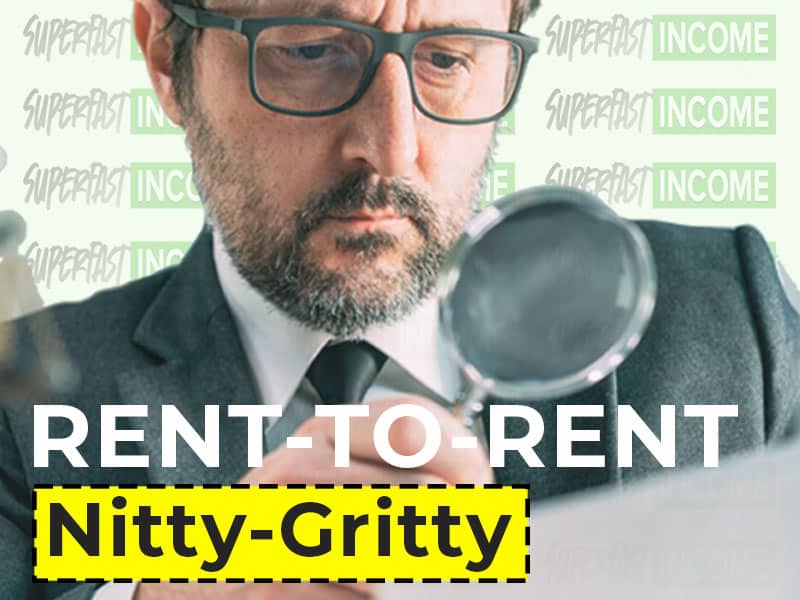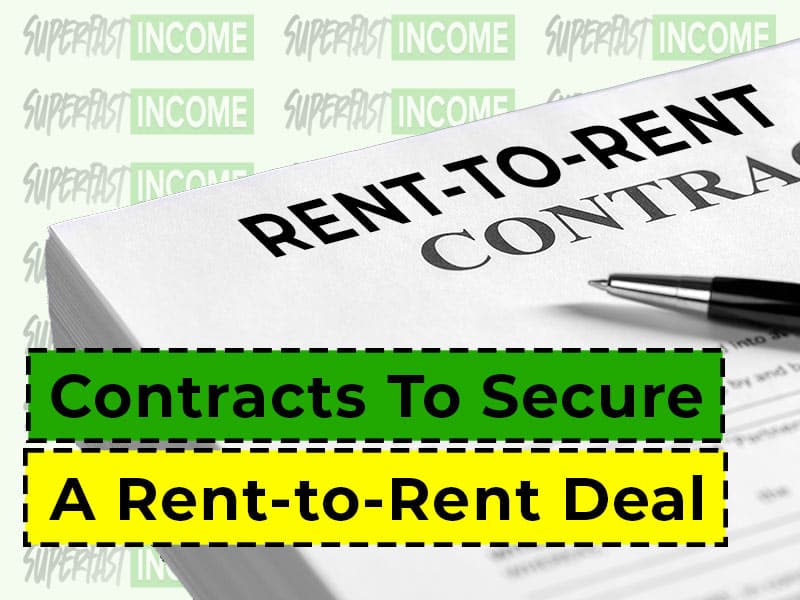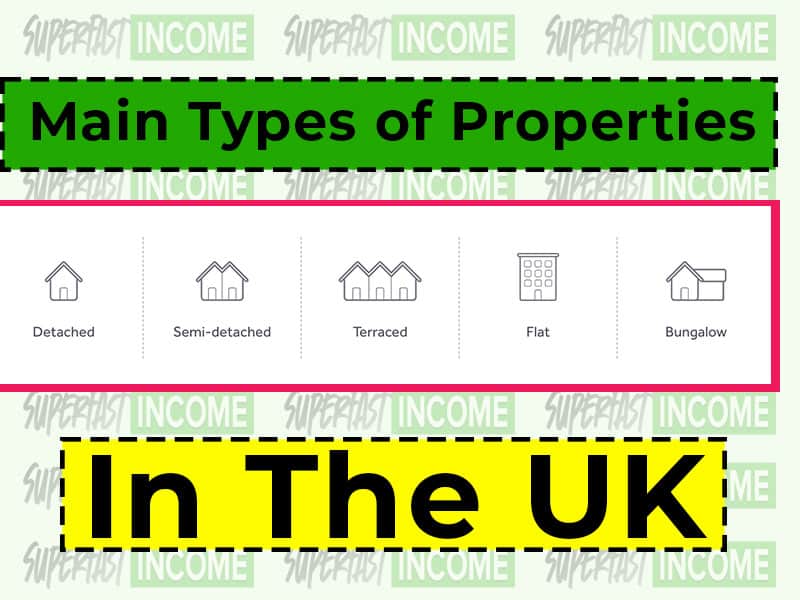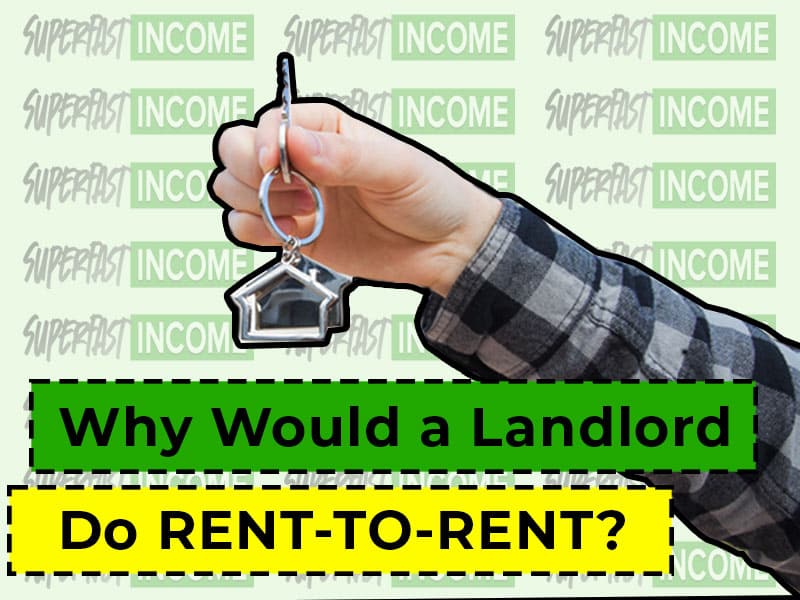With the increasing popularity of Airbnb in the UK and other similar platforms, having an extra room or an entire property to rent out is an attractive opportunity to create additional income or build a rent-to-rent business. But can you legally rent out a property you don’t own?
In the UK, you can legally rent out a property you don’t own if you have the landlord’s consent, the property is a freehold without a mortgage, and the insurance covers this option. In any other instance, after the landlord’s consent, to establish feasibility, you need to check the following documents:
- Property title
- Mortgage type
- Building insurance
- EPC, gas and electrical certificates
Now that you have identified the essential documents to establish the feasibility of renting out a property you don’t own lawfully, it’s time to drill down into the nitty-gritty to ensure that you operate within a legal framework.
What Do You Need to Legally Rent Out a Property You Don’t Own in The UK?

The first requirement – a must – is to receive consent from the landlord. You cannot move forward if the landlord is not open to rent-to-rent.
I heard many stories where rent-to-rent went wrong.
The tenant operated a rent-to-rent business without the landlord’s consent, which is against the law in the UK. The landlord found out and took legal action against the tenant, that later on was evicted.
The consequences are even more severe for some social housing tenants, who may also commit a criminal offence and compromise their criminal records.
So no matter how attractive or lucrative this option could be, please avoid renting out a property you don’t own without the landlord’s permission – even if it’s for a short period.
Later in this article, we will discuss why a landlord would do rent-to-rent so it will be easier for you to recognise potential opportunities for rent-to-rent in the market and understand the landlord’s point of view.
Now, once you’ve established that the landlord is open to rent-to-rent, you want to confirm with him that there is no mortgage on the property or the mortgage is a Buy-to-Let.
Never assume that your landlord operates within a legal framework just because you rent the property from him.
I can guarantee you that this is not always the case!
If there is a residential mortgage on the property you are renting, your landlord may have breached the mortgage agreement, and the lender could potentially recall the entire amount of the loan.
The reality is that in the UK, so many accidental landlords are renting their property illegally or are not fully compliant with the current regulations, so you need to carry out your own due diligence before renting out a property you don’t own.
Regarding the mortgage, you want to ensure that it’s a Buy-to-Let or BTL, It means the lender knows that the landlord purchased the property to let it out.
However, based on my personal experience, lenders may still object to the landlord and don’t allow running a service accommodation or an HMO even if the property has a BTL mortgage.
The good news is that it’s possible to go from a residential mortgage to a BTL mortgage. The only thing that the landlord has to do is contact the lender to request consent and discuss the details.
The main differences between the residential and BTL mortgage are the interest rate and the terms around sublettings.
If the property has a Buy-to-Let mortgage, good chances are that you can tick this box and move to the following requirement.
What Contracts Do You Need To Secure a Rent-to-Rent Deal?
Try to use a property management agreement with your landlord whenever possible because it’s very straightforward and clear in scope.
It simply means you are a property manager taking care of the property.
Unfortunately, it’s not always possible to use it, so I would suggest you also research and familiarise yourself with:
- Commercial lease
- Company let agreement
- AST (Assured Shorthold Tenancy) you may use this for your tenants
Some great websites to check the different tenancy agreements are:
- Tenancy Agreement – Citizen Advice >
- Rights of tenants to sublet their home -Citizen Advice >
- Types of renting agreement – Shelter >
The Best Types of Properties in The UK for Rent-to-Rent
In the UK, you have five main types of property:
- Detached house
- Semi-detached house
- Terraced house
- Flat
- Bungalow
Usually, when it comes to rent-to-rent, you want to focus on detached, semi-detached, and terraced houses because they are more likely to be freehold.
In the UK, you have two main types of titles that show the ownership of the property:
- Freehold
- Leasehold
When you buy a property with the freehold title, you own that property till you sell it to someone else. On the contrary, every leasehold title has an expiration and a series of clauses that may restrict the use or the activities you can carry on the property.
For example, you could find yourself buying a flat and realising that in your leasehold title, you are not allowed to have pets or, most commonly, not allowed to sublet your property or use it to carry out any business.
So, if the property is not a freehold, good chances are that you are not allowed to subletting it. However, some leasehold title doesn’t mention anything about subletting, meaning you could potentially do it.
Now that you know what property types are the best in the UK for rent-to-rent and what to look for in the title let’s move to the insurance required to rent out a property you don’t own legally…
What Insurance Do You Need For Rent-to-Rent in The UK?
When renting a property to tenants, you’ll need extra levels of protection that exceed the standard building insurance. Having proper insurance is required by law, and it’s the landlord’s responsibility.
With this said, you want to ask the landlord for a copy of the general building and landlord liability insurance to confirm that the policy covers multi-letting and sub-letting.
Lastly, ensure that the insurance is not invalidated by the number of people you are planning to have on your property or the terms of the contract between you and the landlord.
Once you tick this final box, you comply with all the basic requirements to run a lawful rent-to-rent business or make extra income with a property you don’t own.
Keep in mind that these are only the basic requirements to rent out a property you don’t own. However, it’s not an exhaustive list because additional documentation may be required depending on the property area and your rent-to-rent business model.
EPC, Gas and Electrical Certificates
Based on the Domestic Minimum Energy Efficiency Standard (MEES) Regulations, Since 1 April 2020, the minimum energy efficiency level for domestic private rented properties must have an Energy Performance Certificate (EPC) rating E and above. The good news is that all the EPC certificates are available online on the GOV.UK website here: https://www.gov.uk/find-energy-certificate
The following certificate to check is the gas safety certificate. After reviewing the good standing of the existing gas safety certificate, you must arrange a gas safety check every 12 months if you decide to take on the property.
The last certificate you need to check is the Electrical Installation Condition Report (EICR). You can find more information in the guide for landlords: electrical safety standards in the private rented sector on the GOV.UK website.
Is Renting Out a Property I don’t Own Considered a Business in The UK?
If you rent a property to make profits consistently, it’s considered a business, and you should treat it as such. So, speaking to an accountant to understand the requirements and the best way to structure your business based on your specific circumstances and goals is essential.
Why Would a Landlord Do Rent-to-Rent?
If you are new to rent-to-rent, it is normal to wonder why a landlord would agree to let someone else manage his property and receive less rent than he could potentially achieve by renting out the property himself – especially after investing so much money to acquire the asset.
These are ONLY a few reasons:
- The landlord bought the property to receive the cash flow, not to create another job for himself, so he may prefer to have someone else manage the property and pay him a fixed monthly amount.
- The landlord is tired of managing the property himself. Maybe the portfolio grows over time until he cannot, or he’s not willing to manage it by himself.
- The landlord struggles to fill the house or the rooms with tenants, and the voids are eating all his profits, so he may prefer to receive less income but guaranteed every month.
- And the list could go on and on…
Running a Rent-to-Rent business is not for the faint heart. You will face many rejections, and most of the properties will not be feasible for this strategy. However, when you find a property owner that is struggling, it’s a Win-Win situation for both of you.





